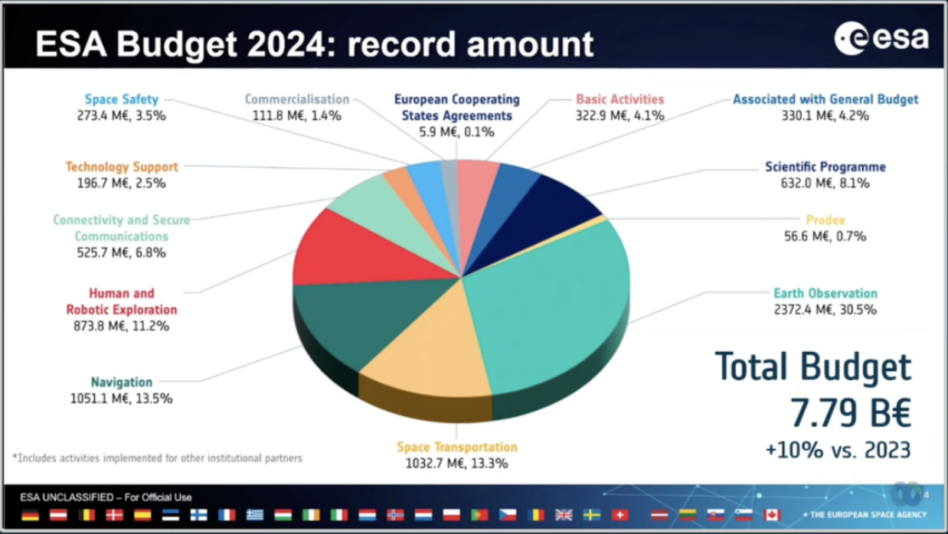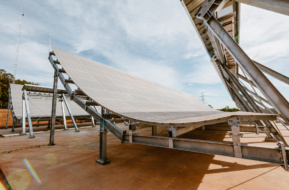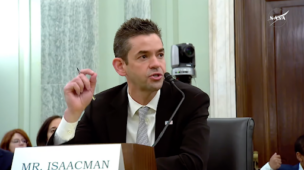The European Space Agency budget will increase this year by 10% to €7.8B ($8.5B), the agency detailed at its annual press briefing yesterday.
The largest funding buckets are EO (30.5%), navigation (13.5%), and space transportation (13.3%). ESA plans to launch five imaging satellites this year, including two Copernicus EO satellites.
The 2024 budget is funded by ESA member states (64.5%), the EU (23.4%), third-party agreement income (10.5%), and Eumetsat (1.5%). Diving deeper, the top nation contributors include:
- Germany: €1.17B ($1.3B)
- France: €1.05B ($1.15B)
- Italy: €881M ($965M)
- UK: €449M ($492M)
Closer to home: Europe’s space investment is still just a fraction of US dollars heading to NASA, which got $25.4B in fiscal 2023. However, while ESA secured a double-digit bump, NASA funding is expected to stay flat or slightly decline.
Updating European Launch
Last year, ESA Director General Josef Aschbacher said European launch was in crisis mode, following Ariane 6 and Vega-C challenges that jeopardized its homegrown access to space. Aschbacher is singing a different tune this year, expressing confidence that Ariane 6 and Vega-C will fly in 2024.
Vega-C gets a launch date: At yesterday’s briefing, Toni Tolker-Nielsen, ESA’s new director of space transportation, revealed that Vega-C’s return to flight has been set for Nov. 15. The vehicle, plagued by continued issues with its engine nozzle, has been sitting on the sidelines since its failed launch in late 2022.
Europe’s much larger next-gen rocket, Ariane 6, is on track to launch in June/July.
Wen reusability? Tolker-Nielsen acknowledged the inevitability of reusable launch vehicles, citing both economic and sustainability benefits.
- The agency will consider the potential for reusability in its upcoming “launcher challenge,” a competition that will support the development of next-gen launch systems.
- ESA said to look for more details on the challenge this year.
Artemis on time: ESA leadership said delays to Artemis II and III will not impact the delivery times for its program hardware. ESA is responsible for building the service module that powers the Artemis Orion spacecraft. The agency has already delivered the service module for Artemis II and is on track to ship the Artemis III service module mid-year.




